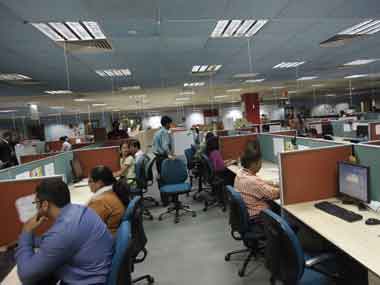The 21st Century has evolved as the age of disruption: In technology, in business models and in entire industries. The challenge for organisations to be continuously competitive is by changing the existing organisational paradigms and mindsets. Professor Christopher Abraham, head of SP Jain Global, Dubai campus, and Profesor Vijayan Pankajakshan, dean-HR, Academics and Industry Interface at Welingkar Institute of Management Development and Research, Mumbai point out what organisations can do to keep in step with 21st century employees, their expectations and incorporate that into its culture so that attrition is reduced. [caption id=“attachment_2538084” align=“alignleft” width=“380”]  Representational image.[/caption] The eight key factors that organisations need to focus on: 1. Continuous innovation: In the 21st Century organisation, innovation goes beyond mere products and to remain competitive, organisations need to embrace innovative thinking across every area of business including strategy, talent management, supply chain, and stakeholder management. Innovation in the 21st Century requires a fresh mindset that empowers everyone in the organisation to think and execute differentiation in a radical manner. 2. Authenticity, trust and transparency: The 21st Century organisation is ’naked’ and hence being transparent and authentic is no longer an option. While trust in leadership is declining, organisations need to conscientiously demonstrate authenticity in all dealings with all their stakeholders. 3. Purpose-driven organisations: To excel, organisations need to shift their mindsets from profit-orientation to purpose-orientation. Remarkably successful organisations of the modern era like Google, Zappos etc have demonstrated beyond doubt that having a purposeful focus translates into higher profits and productivity. 4. Collaborative cultures and collective intelligence: Organisations across the world have started embracing the power of “The Wisdom of Crowds″. When Procter and Gamble (P&G) in 2005 decided to move from its traditional research and development (R&D) to the game-changing concept aptly named connect and develop (C+D), in opened a world of opportunities for them and for other organisations. This concept is extensively used now in product markets and technology solutions, where ideas are crowd-sourced. 5. Managing millennials and next-gen employees: One of the key challenges for modern organisations is the increasing number of millennials and Gen-Zers. This throws unique challenges in terms of managing their differing perceptions, attitudes and expectations. Organisational leaders need to be aware of this and shift their focus to these changing requirements. 6. Need for role models: After the recession, the generation that has entered the workforce has found itself with lesser role models. They have been instead overwhelmed by scandals — Lehman Brothers, Rajat Gupta, Vokswagen etc. Hence, there is a sense of ‘cautionary optimism’. Research has shown that the current generation will change at least 30 jobs in their career. They enter the workplace at 22 years of age and exit at 55-60 years. This shows that the young are in a hurry to gather experience and worse, most of them don’t know why they are in a hurry! They have no role models within the organisation and no faith that they will taken care of if they worked longer in the same firm. 7. Engaging with employees**:** Computers have replaced the need to engage with co-workers and has led to a sense of alienation among employees. This generation is earning money, but does not have a sense of belonging to the organisation. 8. Work from home policy: There is large potential to work from home as connectivity has made working from anywhere possible and easy, too. With traffic congestion and long hours to commute to work, people are getting tired with the travel and work becomes more challenging. Managers in some organisation prefer to see people working and are not comfortable not ‘seeing’ them if they work from home. Organisations should be employee-focussed and allow people to work from home. Women professionals are forced to leave jobs in some cases as organisations don’t allow flexi-hours or longer work-from-home intervals. In the bargain, organisations lose out on talent. Check out Firstpost’s collection on how the past 15 years transformed sports, entertainment, technology and more in F.Rewind .
The challenge for organisations to be continuously competitive is by changing the existing organizational paradigms and mindsets.
Advertisement
End of Article


)

)
)
)
)
)
)
)
)



